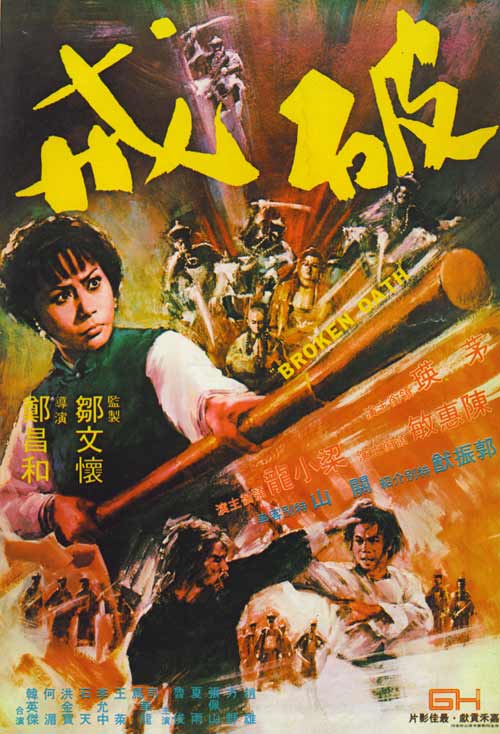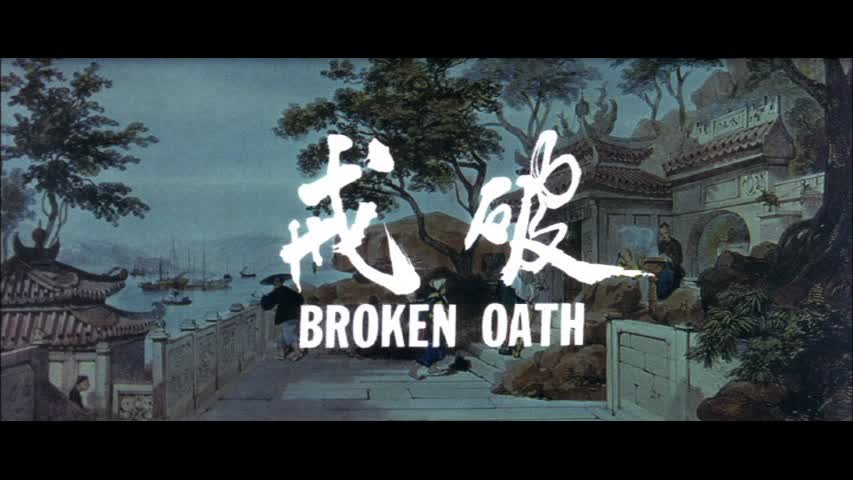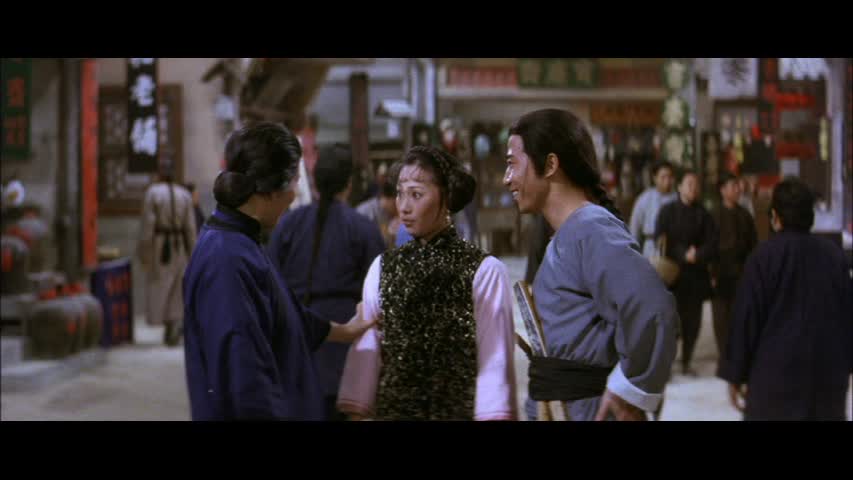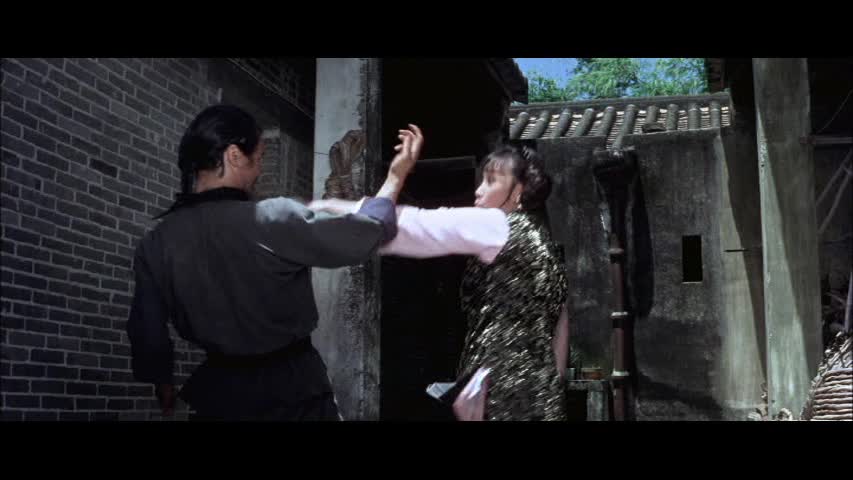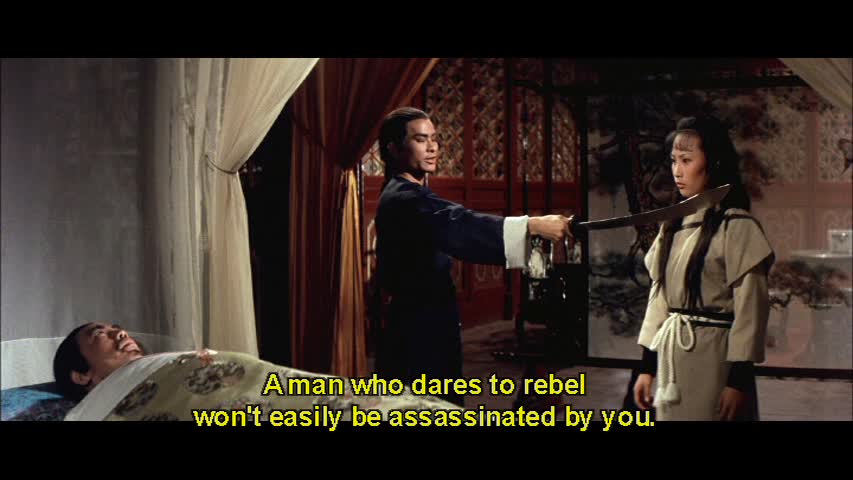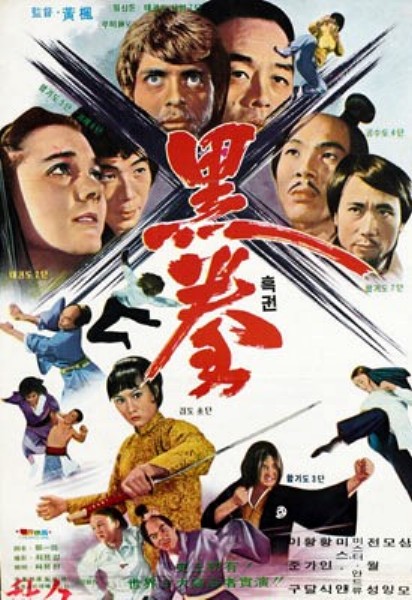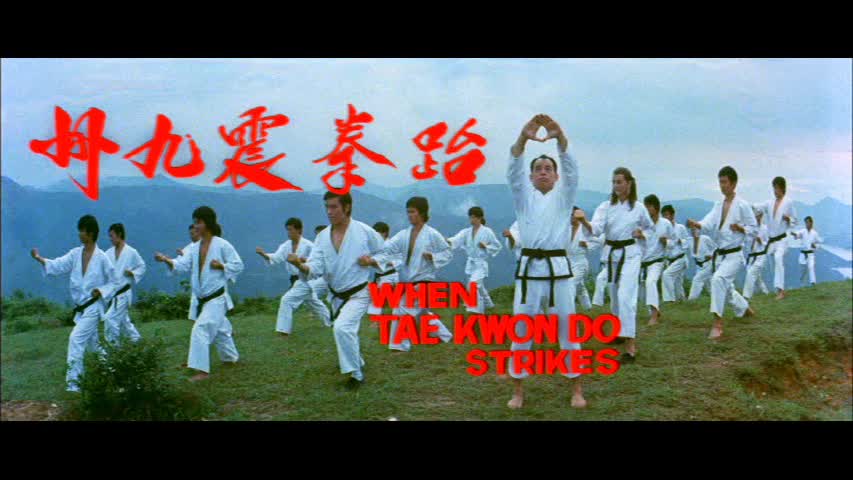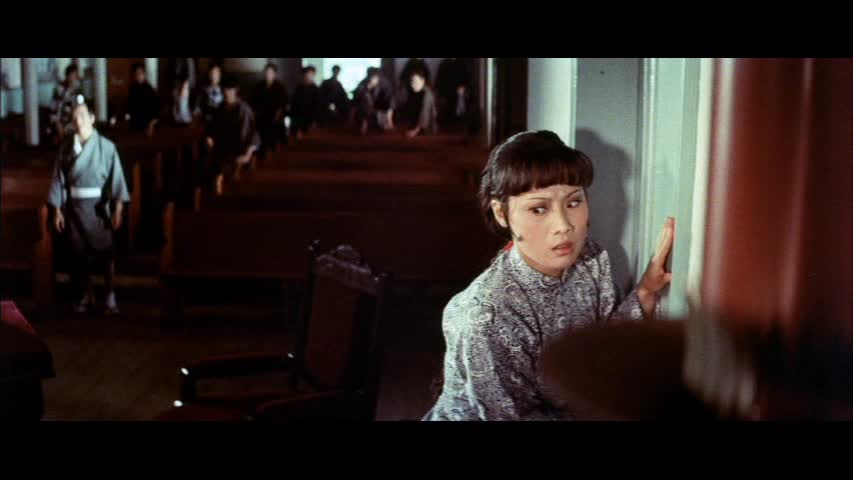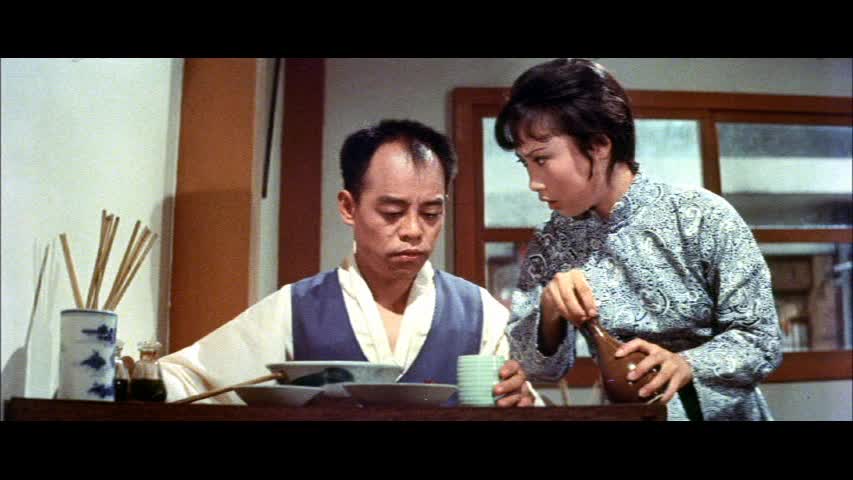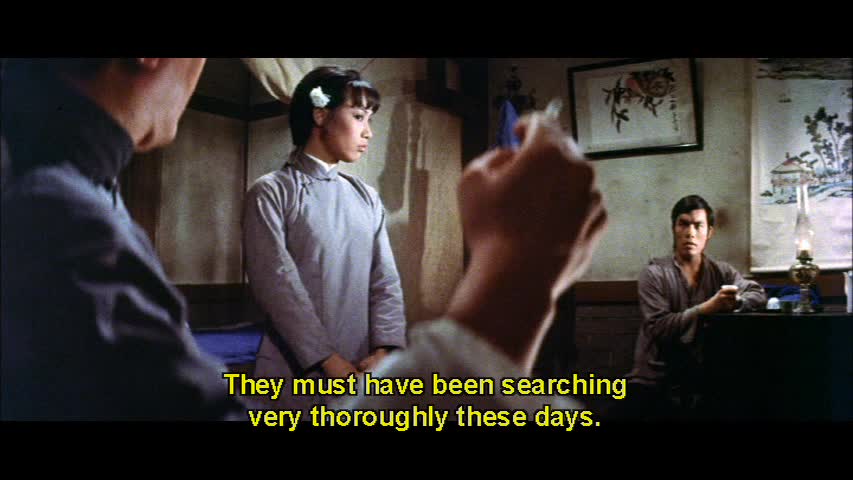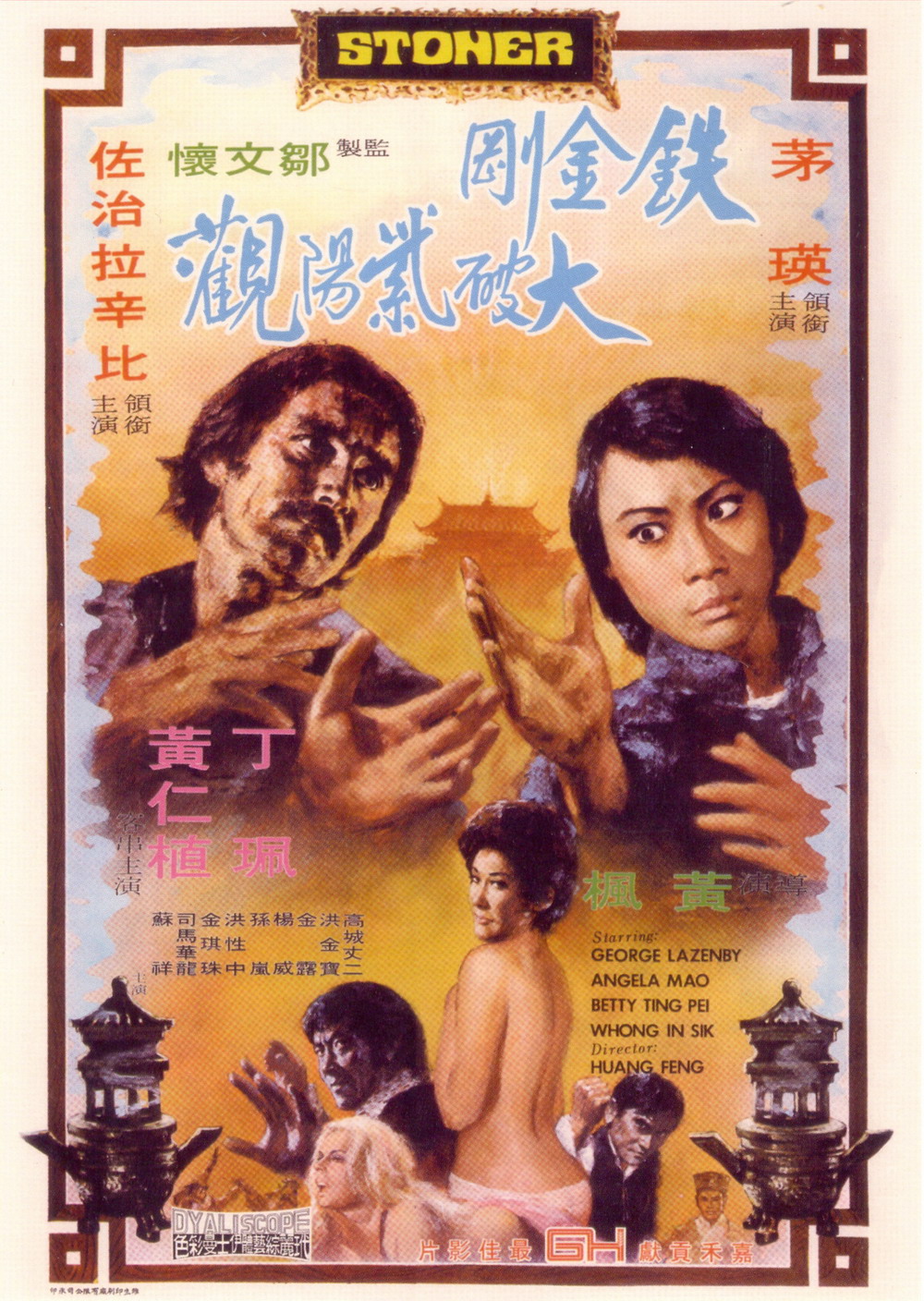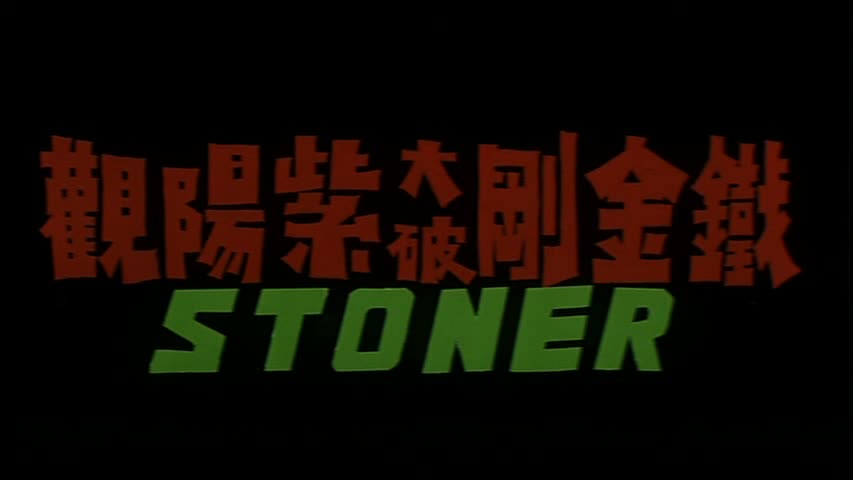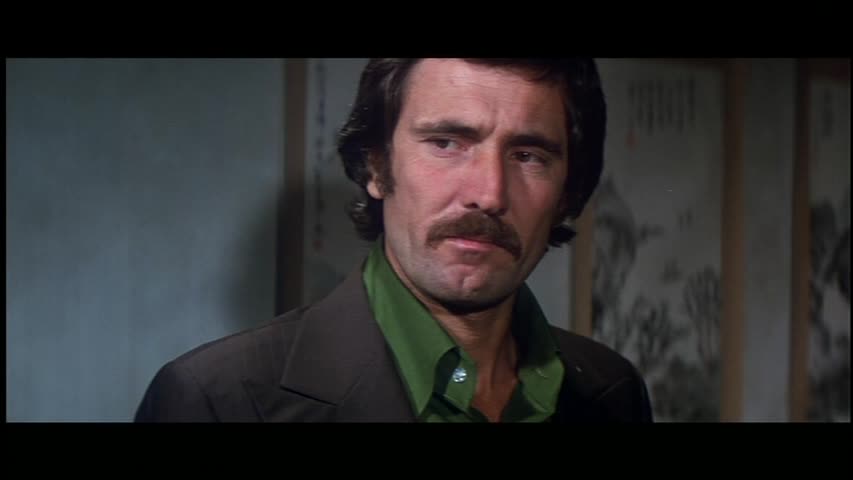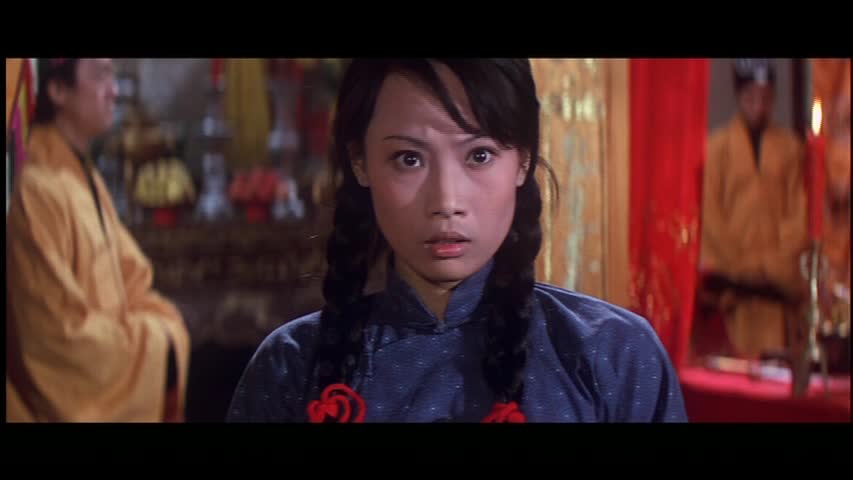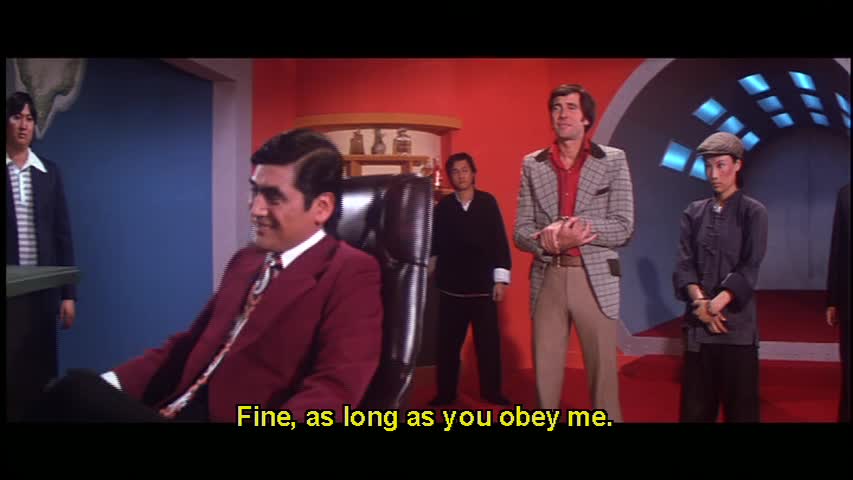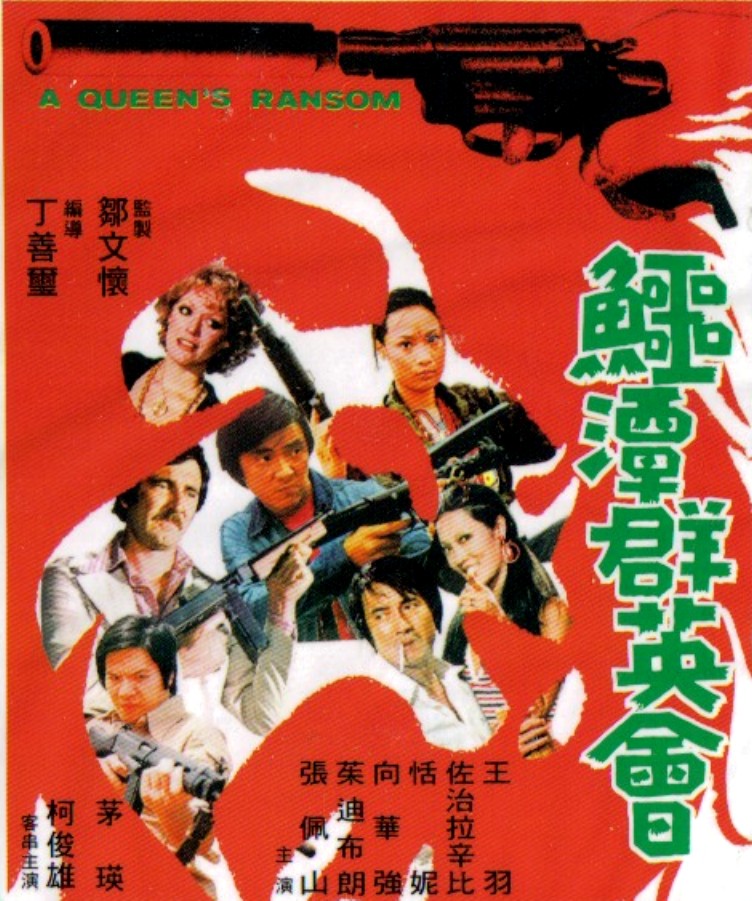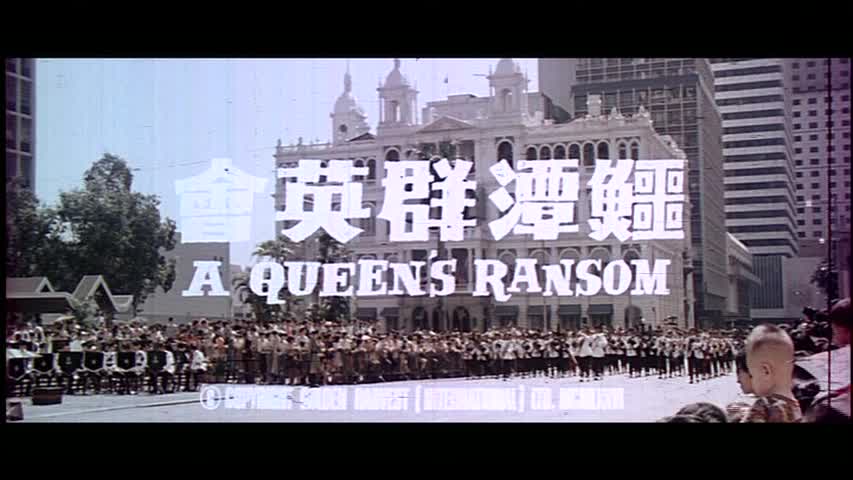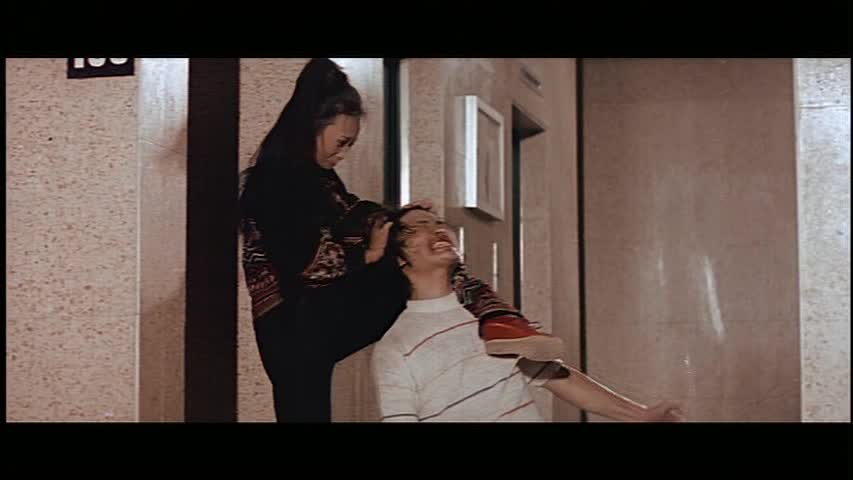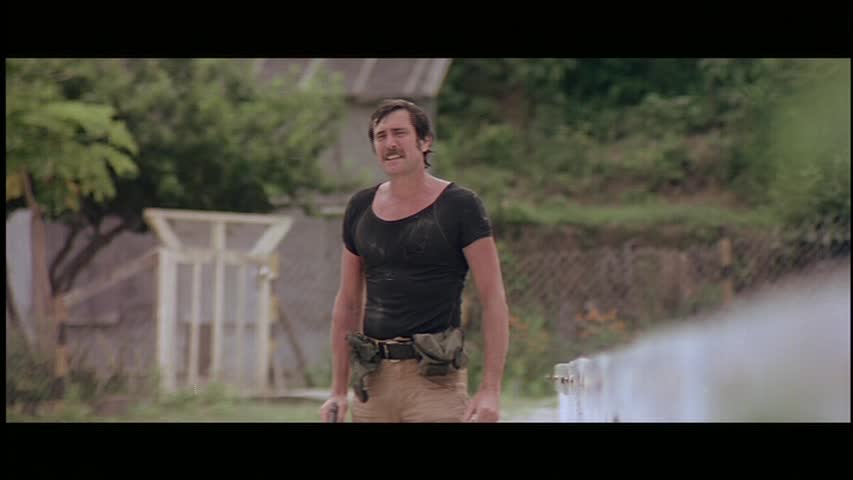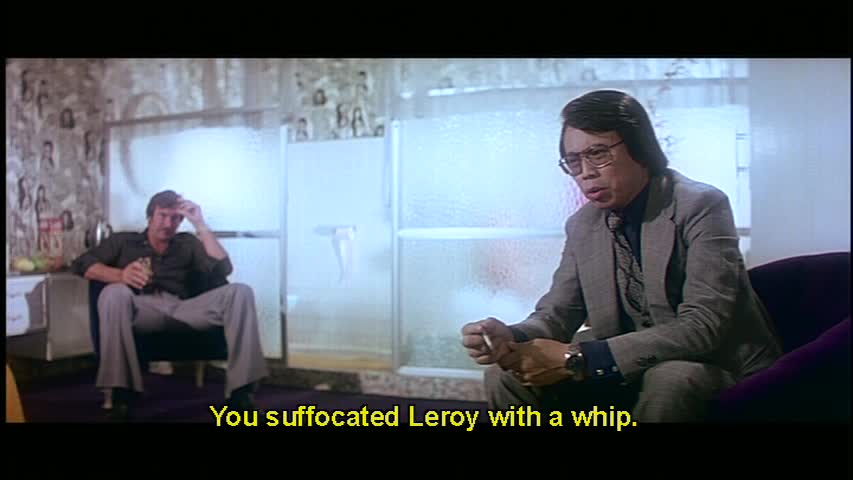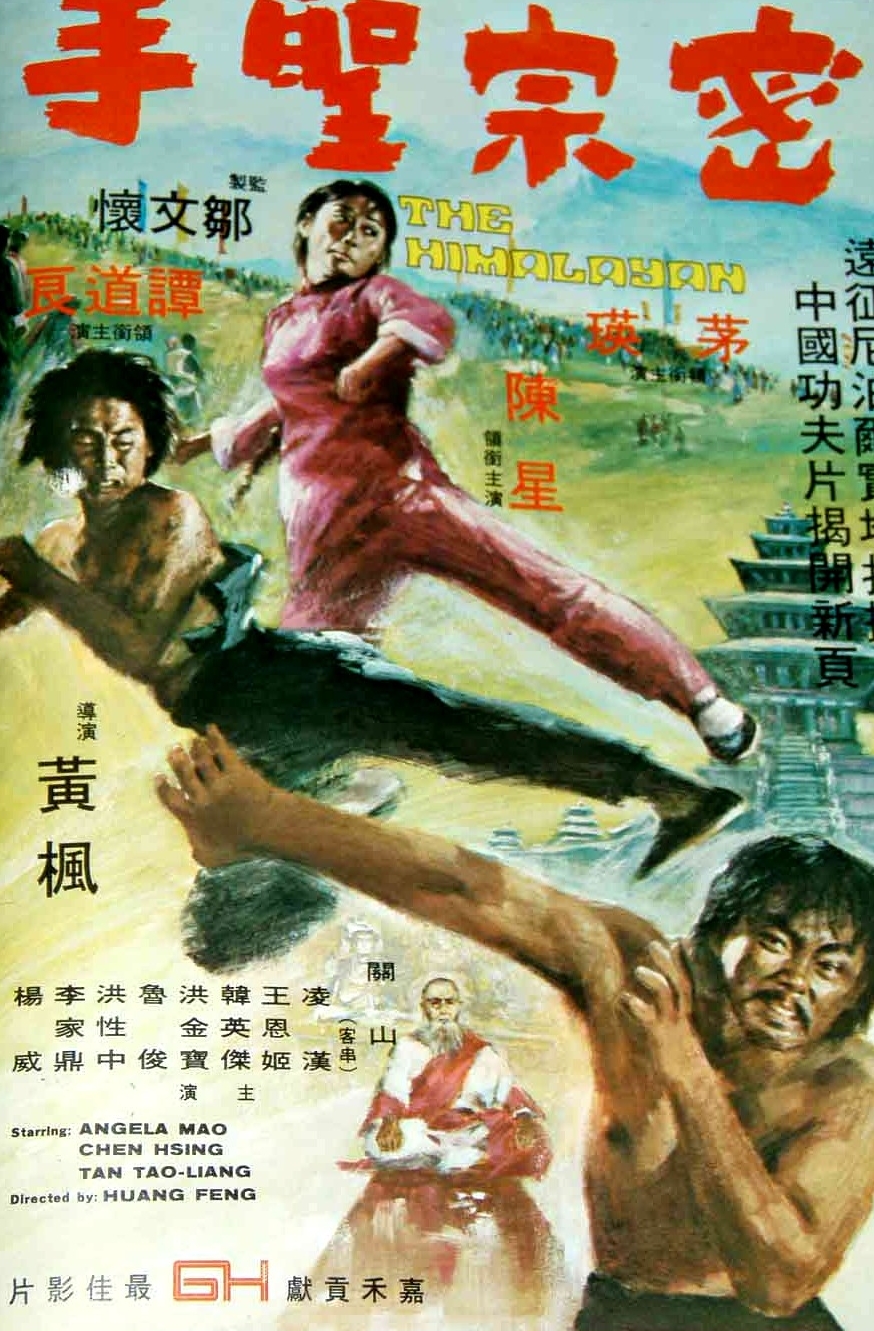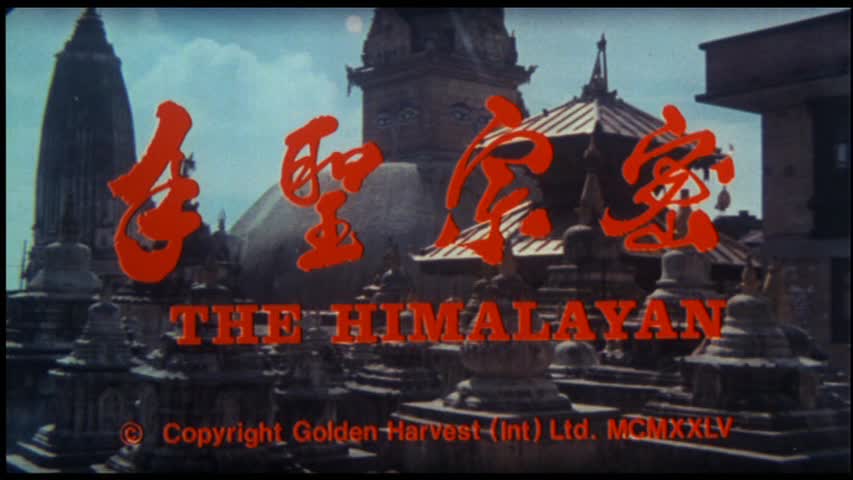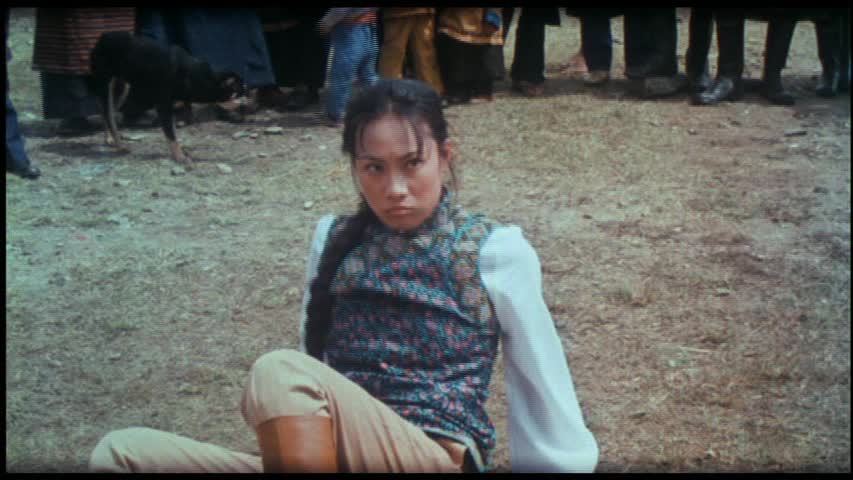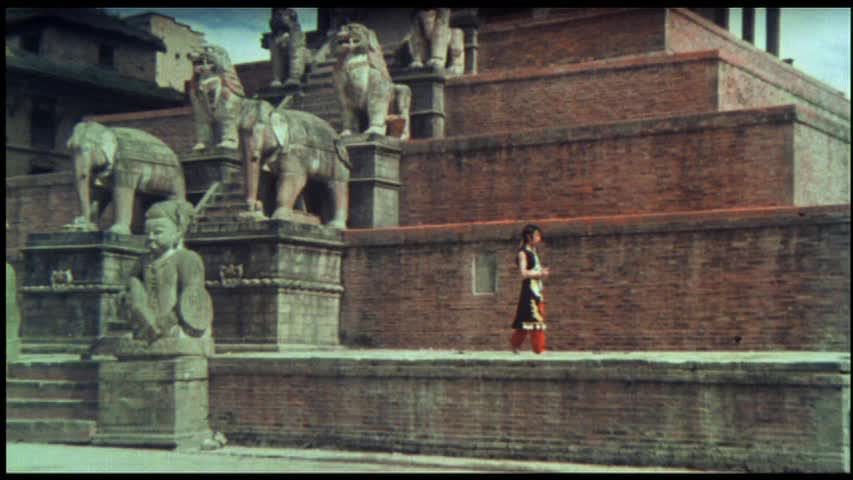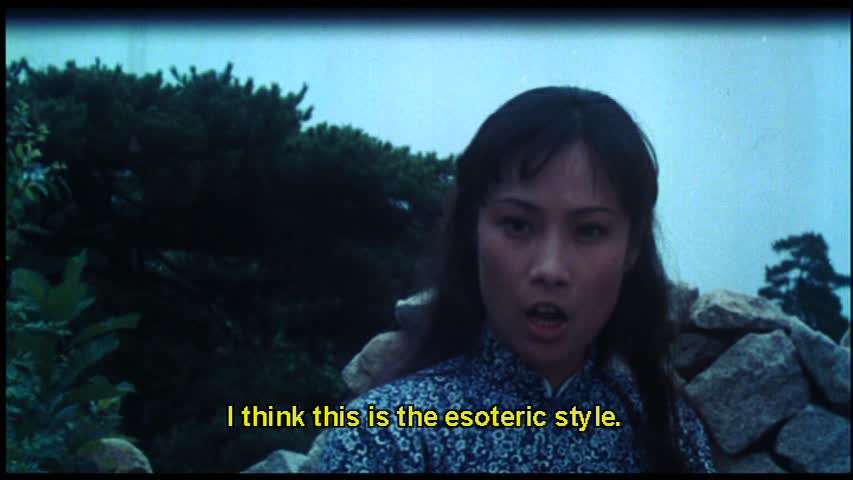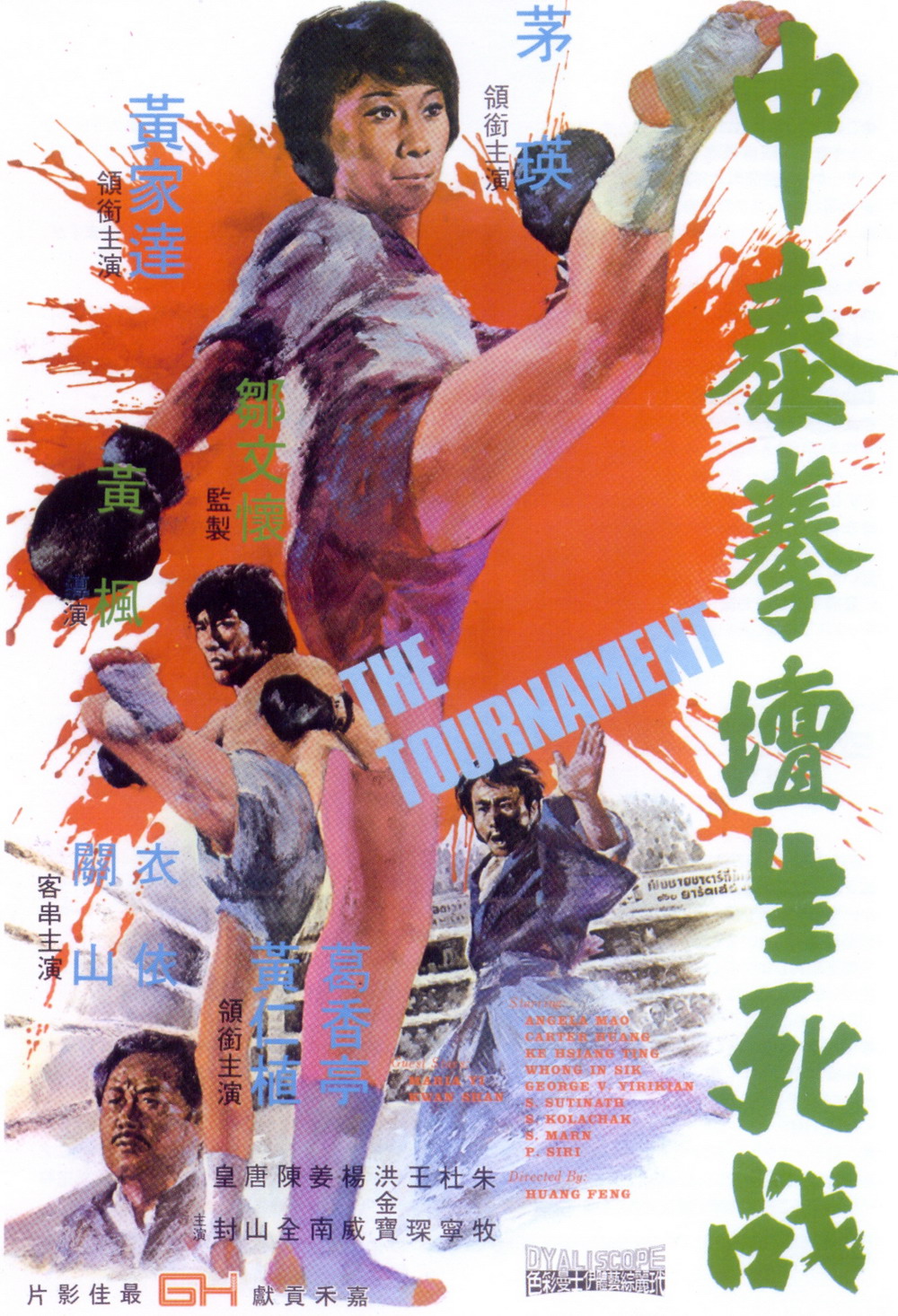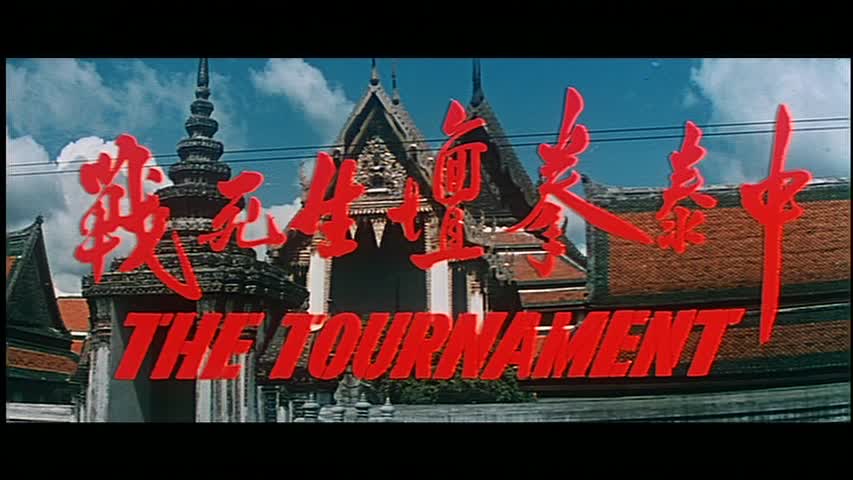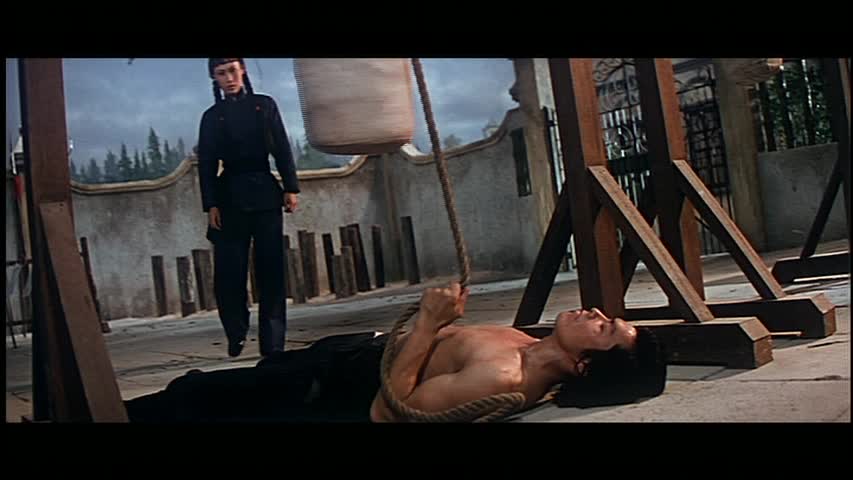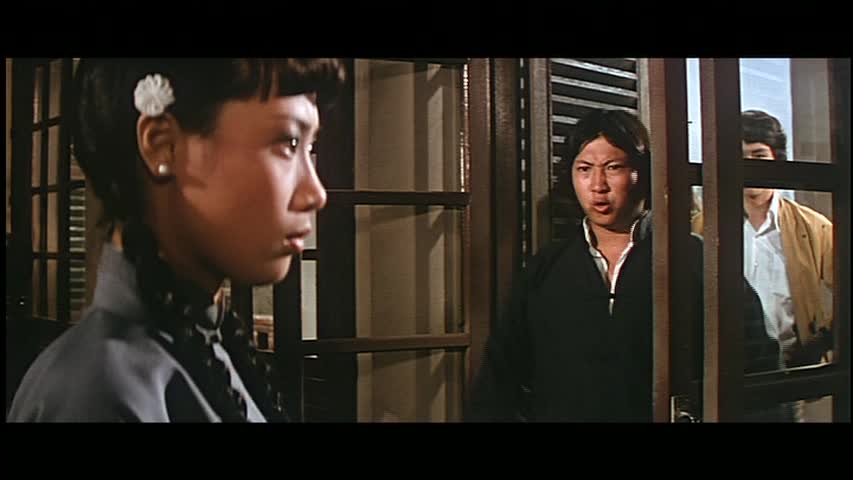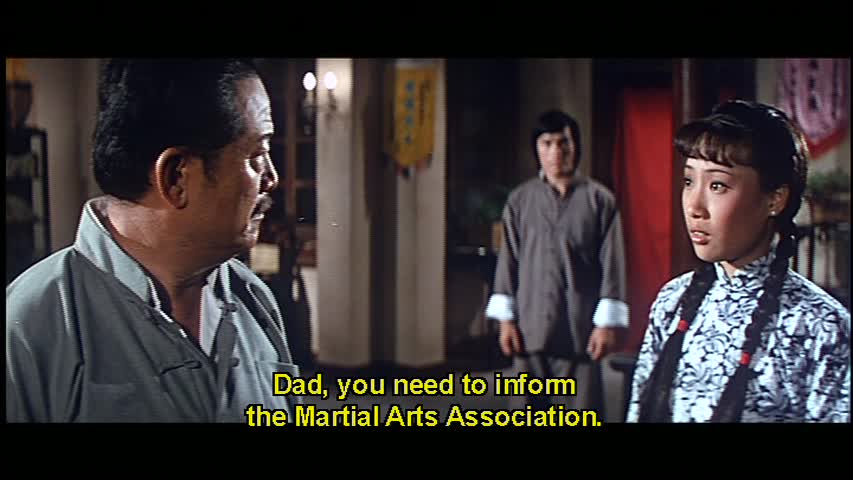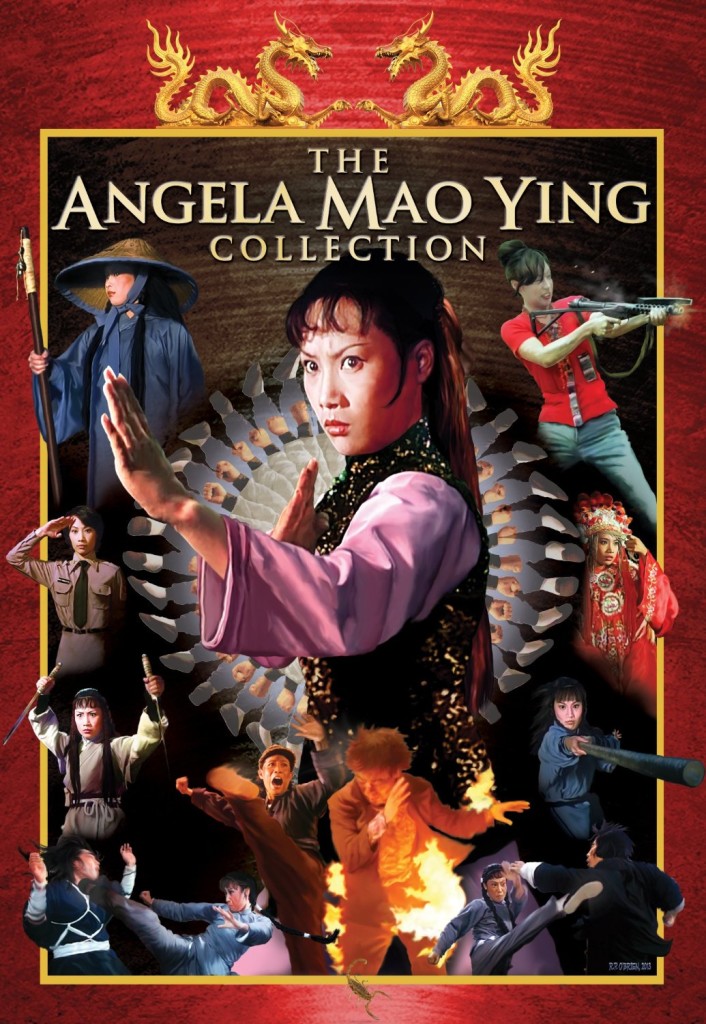
Rating:




DVD/Blu-Ray Reviews
Main Page
The Angela Mao Ying Collection
Shout! Factory's The Angela Mao Ying Collection is a three DVD set containing six films from her work with the Golden Harvest studio: Broken Oath, When Taekwondo Strikes, Stoner, A Queen's Ransom, The Himalayan, and The Tournament. Angela Mao is considered one of the queens of the oldschool kung fu genre, and to have so many of her best-known movies contained in one set -- and in widescreen and in their original Mandarin language -- is a real treat for American kung fu fans.
The set comes in a single case with all three DVDs in it. The menus are of the same design as Shout!'s recent release of Martial Arts Movie Marathon. They're not all that exciting visually, and like Martial Arts Movie Marathon, there is no chapter select option.
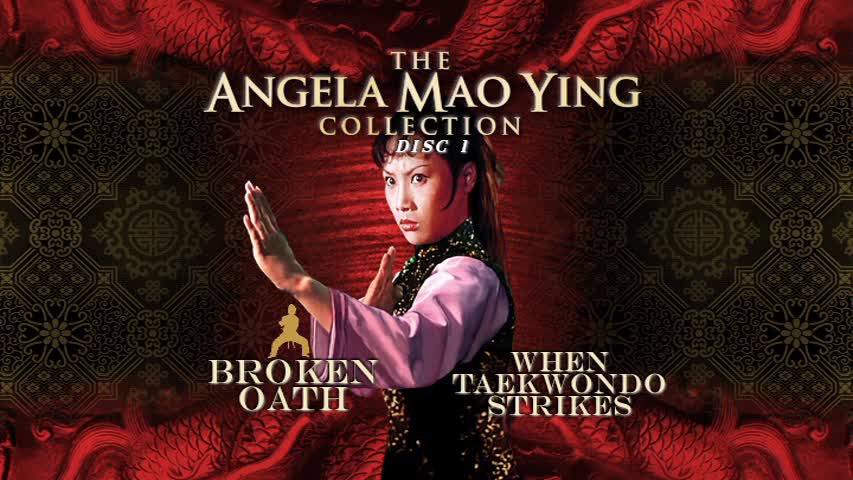
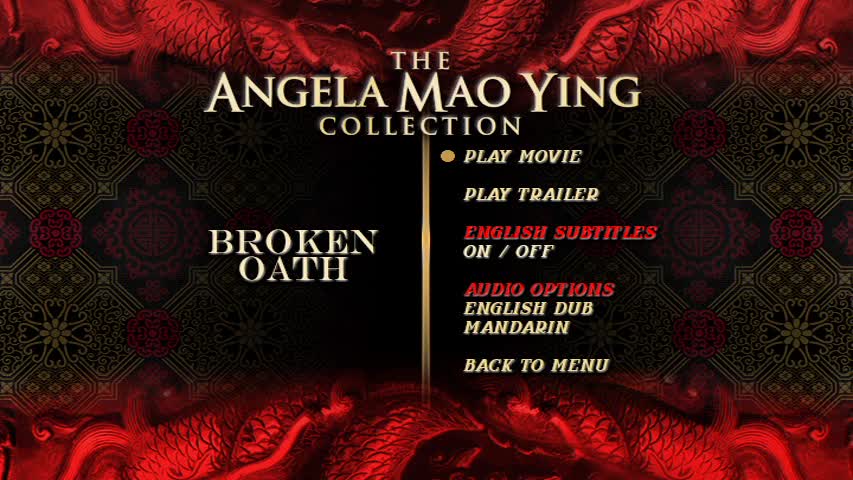
As far as extras, the lone entries are the original Chinese trailers for Broken Oath, When Taekwondo Strikes, A Queen's Ransom, and The Tournament. These are in Mandarin and not subtitled.
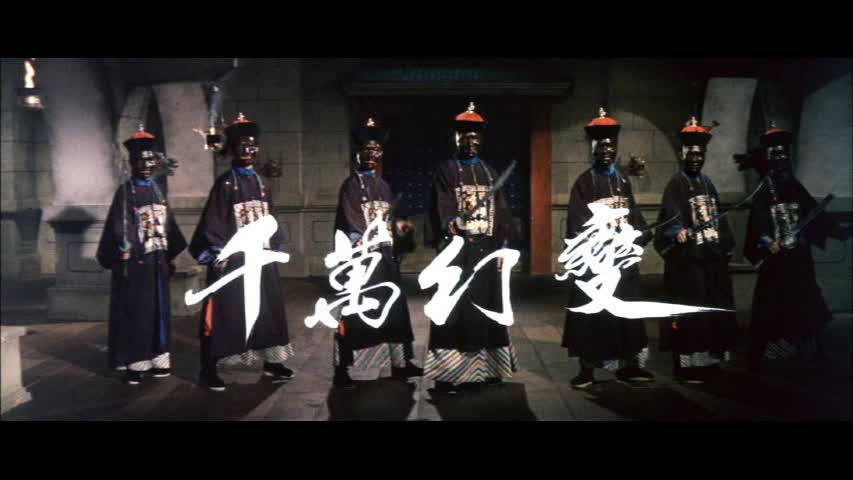
Like Shout!'s other recent kung fu releases, the films use source materials from Fortune Star. Most are presented in 2.35:1 anamorphic widescreen (The Himalayan is in a 1.85:1 ratio) running at 29.97 FPS and 720 x 480 resolution. The overall quality of the prints varies from film to film, though all of them do seem to have at least been given at least some level of remastering and look good for low-budget movies made some forty years ago. Though it should still be pointed out that When Taekwondo Strikes has an odd flickering throughout the movie and The Himalayan has a worn print that shows slight specks and damage.
Audiowise, most of the films have Mandarin and English soundtracks in Dolby 2.0. These are mixed well enough, bringing forth the suitable amount of bass when feet and/or fists meet faces, though purists may be upset that the original mono mixes are not included. Note again must be made of When Taekwondo Strikes; both soundtracks have been remixed into 5.1 and have a slight hiss to them. Also, the Mandarin soundtrack for Stoner still uses English when western (white) characters speak; this is how the movie was originally made. And since A Queen's Ransom uses the original Hong Kong cut that has scenes not in the English version, these segments play in Mandarin on the English soundtrack.
English subtitles are provided that are easy to read for the most part; they are not dubtitles. The translations have been cleaned up from the Hong Kong DVDs released through Joy Sales and are much easier to follow since they lack the obvious grammatical errors which were quite apparent on those editions.
Reviews, clips, and screen captures for each film are below. The screen captures were obtained with VLC Media Player and the clips were extracted via 4VideoSoft; neither have been altered. The clips for Broken Oath and A Queen's Ransom were taken down from our YouTube page due to alleged copyright violations, which is curious, since you can easily find both films in their entirety on the site. At any rate, we have uploaded the MPEG files for viewing the clips; you will need the QuickTime plug-in to play them. Since they are 100+ MB in size, you may want to hold off on watching them if you are on a slow connection or paying for mobile data.
|
|
|
|
Broken Oath
The set starts off with a film many not only consider to be Angela Mao's best movie, but the top of the line for Golden Harvest's filmography. Based on the 1973 Japanese picture Lady Snowblood -- which was also a major inspiration for parts of the Kill Bill films -- Mao here plays Lotus, a young woman who sets on a bloody path to get revenge for her mother who was raped, framed, and imprisoned. While not salacious or overly violent, this is a for all intents and purposes an "adult" film and has quite a dark tone at points, very much earning the R rating given to it for the US release. The action scenes were coordinated by Yuen Woo-Ping, who was just about to become a leading director the next year with Snake in the Eagle's Shadow and Drunken Master, and it's very obvious he was starting to hit his cinematic stride here. The film starts off a bit slowly, but once it kicks into gear, it's among the best the genre has to offer. Mao is joined by a stocked cast that includes Michael Chan, Bruce Leung, Sammo Hung, Yuen Wah, Corey Yuen, Mars, Lam Ching-Ying, and Yuen Biao -- just to name a few. Broken Oath is basically a who's who of the time and the onscreen results show it, as this is about as good as oldschool kung fu gets. For many fans of the genre, having a nicely transferred version of Broken Oath included in the set will justify a purchase all on its' own.
RATING: 8 Note: An alternate review of the film can be found here. |
|
|
|
When Taekwondo Strikes
Like many Hong Kong production companies, Golden Harvest was always looking for hooks to bring in audiences. The gimmick here is the inclusion of Jhoon Rhee in his only major starring film role, both before and since this release. Rhee was a friend and contemporary of Bruce Lee who shared Lee's philosophy of teaching martial arts to anyone who had the desire, regardless of their ethnic background; he came to be known as "the father of American Taekwondo" for his introduction of the style to the United States. While Jhoon's (and some of his students) inclusion is somewhat unique in the realm of oldschool kung fu movies, the plot is anything but, being more of a female-oriented version of Fist of Fury than anything new and groundbreaking. As you might expect, Angela Mao is this movie's saving grace. Besides playing one of the stereotypically evil and nasty Japanese baddies, Sammo Hung handled the action direction, making Mao's fight scenes stand out, which goes a long way to smoothing the somewhat bumpy road of When Taekwondo Strikes' clumsy exposition, where the cinematic smorgasbord of Chinese, Japanese, Korean, and American actors can never really seem to mesh together.
RATING: 7 Note: An alternate review of the film can be found here. |
|
|
|
Stoner
Australian actor George Lazenby is best known for playing James Bond in one film, the under-rated On Her Majesty's Secret Service. Lazenby's legendarily cocky attitude on and off the set of OHMSS quickly had him sacked from any prospects of appearing in further Bond pictures. Producer Raymond Chow, looking to increase international audience share for Golden Harvest releases, went outside of the box and brought in Lazenby for three films with the studio, the first being 1974's Stoner. An odd mix of spy caper, martial arts throwdown, 60s-style psychedelic trippy visuals, and T&A exploitation, Stoner never quite gels together. The script has a ton of holes in it; characters seemingly come and go at a whim. Even Lazenby's role is not clear. Is he supposed to be Australian? British? American? Is he a cop or a secret agent or just some dude out for a good time? And most importantly, where did his mustache go? Angela Mao's character in the picture (as a Taiwanese cop reluctantly teamed with Lazenby) also feels incomplete, as if she was placed in the movie just to have a kung fu battling babe to sell to the film to potential viewers, which, in reality, is most likely the case. Despite how banal the movie can be at points, it's never really boring. Sure, it's getting by on the "what the hell did I just see?" trainwreck factor versus competent film-making, but taken as a somewhat bizarre example of multi-level marketing gone awry, it's an interesting exercise in futility to watch.
RATING: 5 Note: An alternate review of the film can be found here. |
|
|
|
|
A Queen's Ransom
After The Man from Hong Kong, George Lazenby made his last appearance in a Golden Harvest production with A Queen's Ransom. This is a film that is, at least, more coherent than Stoner; basically, Lazenby is the head of a gang (that includes Jimmy Wang Yu, who apparently hated Lazenby, leading to clashes on the set) that the cops think are out to assassinate Queen Elizabeth while she is visiting Hong Kong. But wait! There's another royal in the midst -- Angela Mao plays a Cambodian princess on the run in Hong Kong during the aftermath of the Vietnam war. What is her role in all of this? Will anyone care after the painfully obvious twist is revealed after seventy-odd minutes? For most people, the answer will be a resounding "no". A Queen's Ransom wastes far too much time in dull exposition and boasts clumsy action scenes that offer little, if any, real excitement. Not surprisingly, A Queen's Ransom tanked at the box office and Lazenby headed back to Oz, never becoming the "great white hope" of the martial arts genre Raymond Chow apparently envisioned him to be.
RATING: 4 |
|
|
|
The Himalayan
Thankfully, the third disc rebounds well, as this is another entry that would be rightly considered placed towards the top of both Angela Mao and Golden Harvest's output. Filmed in Tibet to ostensibly showcase the "esoteric" style of kung fu, The Himalayan ultimately doesn't deviate too much from the standard oldschool playbook, but it does what it sets out to do oh so very very well, to the point that most viewers will be able to forgive the shortcomings in the storytelling department for the sake of their ocular orifices being able to take in the fisticuffs partaken of here, particularly the finale, where Angela Mao teams up with Dorian Tan to take on the lead villain played by Chan Sing. The Himalayan does lose a couple of points for its' meandering nature -- but as far as the pure onscreen portrayal of martial arts goes, this is among one of the genre's higher-tiered entries, a picture that still draws admiration and respect from fans all over the world some thirty-five years after it was originally filmed.
RATING: 7.5 |
|
|
|
The Tournament
The success of Chang Cheh's 1971 Thai kickboxing (Muay Thai) themed picture Duel of Fists brought forth a slew of similarly-themed fare. One of the last major releases in this sub-genre was 1974's The Tournament. The story is your standard kung fu revenge tale; Angela Mao and Carter Wong play a duo of Chinese martial artists wishing to travel to Thailand to learn kickboxing in order to improve their techniques so they can avenge their school's beatdown at a tournament. This chutzpah doesn't sit well with the cranky-ass Chinese elders -- which include Sammo Hung, who also was one of the film's action coordinators -- but after Angela demonstrates the synergy between each region's styles (ie, she beats up some poor Thai schmuck by using kung fu and kickboxing) it's on like Donkey Kong. There's nothing all that extraordinary going on here, but the amount of finely delivered knuckle sandwiches makes this a solid way to finish off the set.
RATING: 7 |
